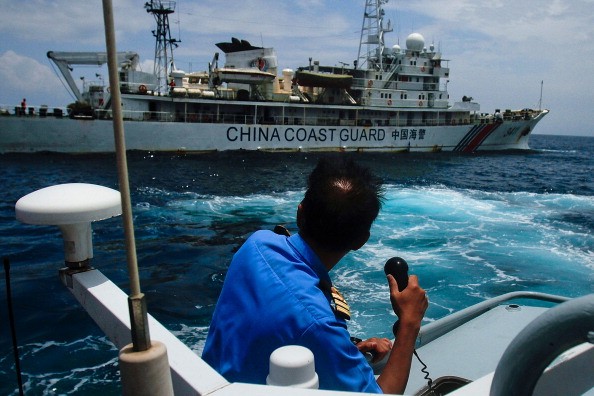Rising tensions in the South China Sea are set to dominate Asia’s biggest security summit in Singapore on Friday, highlighting a deepening rivalry between the United States and China ahead of a landmark legal ruling in The Hague.
The unofficial Shangri-La Dialogue (SLD) is the final chance for the two nations to drum up support before a decision from the Permanent Court of Arbitration in a case brought by the Philippines.
Manila is disputing Beijing's claim to an area shown on its maps as a nine-dash line stretching deep into the maritime heart of Southeast Asia, covering hundreds of disputed islands and reefs.
According to a report posted by Reuters on Wednesday, the U.S. is expected to push for Southeast Asian countries, as well as major regional powers such as India and Japan, to publicly support any decision favoring the Philippines, who asked the court to recognize its right to the waters in the South China Sea.
China, which rejects the court's authority, will try to convince the countries to abstain from taking a public position and make it easier to stave off criticism from the West, the report said.
"The value of the case is the long-term reputational damage and the pressure . . . on the Chinese. That only works if you have a big coalition that can keep this in the public eye," said Greg Poling, director the Asia Maritime Transparency Initiative at Washington's Center for Strategic and International Studies think tank.
"But if the Chinese . . . get a ton of countries to abstain, that deflects a lot of that criticism," Poling added.
Among 20-odd delegations that are expected to attend the summit, much attention will be spent on the positions of Southeast Asian countries. Regional players have had difficulty coming to an agreement regarding China's claims in the South China Sea, as they struggle to balance their security interests with their deep ties to the world's second largest economy.
In addition to China and Taiwan, the Philippines, Vietnam, Malaysia and Brunei have also staked their claim in the increasingly militarized area. The U.S. has also increased its patrols and exercises in response, stressing the need to keep international sea-lanes open.
Of particular importance would be Thai Prime Minister Prayuth Chan-ocha's keynote opening speech, whose rare international appearance will be closely scrutinized for hints on Thailand's strategic stance on the issue.
"Thai policies reflect the predicament of the region," Tim Huxley, a security expert with the event's organizer, the London-based International Institute of Strategic Studies, told Reuters.
"Regional states want to have positive relations with China yet at the same time . . . strategically they are aligned with the West and they have reasons for being cautious about China's behavior in the region."
The three-day summit offers a rare opportunity for regional military and intelligence officers and their civilian leaders to openly discuss regional defense trends and tensions.
The summit comes amid major strategic shifts in the region, particularly the recent election of tough-talking Rodrigo Duterte as president of the Philippines and the lifting of the U.S. arms embargo on its former Cold War foe Vietnam.
The agenda also includes the heightening tensions over North Korea, which conducted its fourth nuclear test in January and followed by a satellite launch and test launches of various missiles, which brought a new round of sanctions.
The isolated country attempted to fire a missile from its east coast this week, but the launch seems to have resulted in failure.
Other topics of discussion include the threat of radical militants in Southeast Asia, as well as cybersecurity, which has become a major issue following a series of bank heists from Bangladesh to Ecuador.
"Only a meeting of minds can solve or mitigate these challenges and as host, we will make sure that leaders get full opportunities to engage each other," Singapore Defense Minister Ng Eng Hen said in a post on his Facebook page.



























